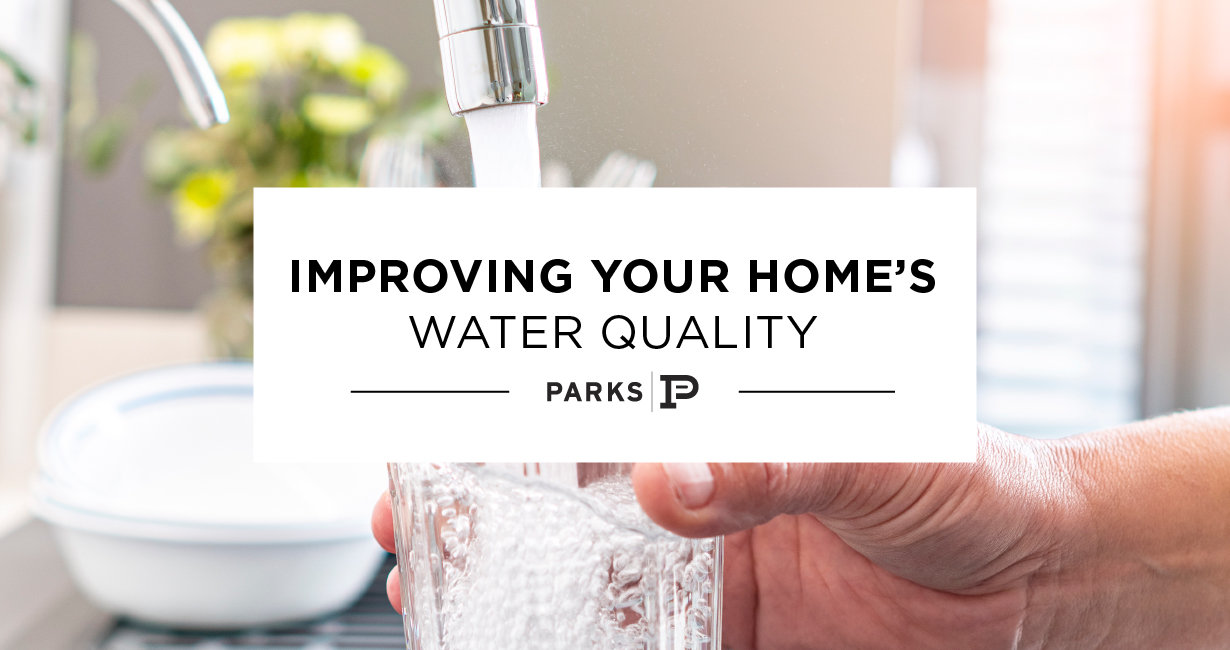Improving Your Home's Water Quality
Posted by Marketing on Friday, February 10th, 2023 at 11:00am.

Our bodies are composed of 55% to 60% water, so it’s no surprise that homeowners are interested in ways to upgrade their home water quality. From chlorine and heavy metals to unpleasant smells and flavors, there are a number of excellent reasons to first test your water, then take steps to refine your municipal water supply. Read on for a breakdown of the why, the how, and the results you should achieve with various methods.
Is Your Water Safe?
As residents ourselves, we’re pleased to report that the water reaching you throughout Middle Tennessee has been carefully filtered, treated, and tested before it is sent out into your community.
But there’s a catch: water utility companies are not responsible for nor required to ensure that the water you draw from your taps matches the safety or quality of the water that leaves the treatment plant. Instead, homeowners must monitor their own water for purity and taste, which can even vary with the changing of the seasons.
The upshot of this dynamic may result in water emerging from your tap with zero disinfectant present. If this should occur, your water has not been cleansed of potentially harmful bacteria since it has entered your home’s water system. Your water’s pH may vary, and harmful carbon and metals may have been introduced into the water your household drinks, cooks with, and bathes in.
Choose Optimal Plumbing Components
To keep your water as clean as possible as it travels throughout your home, plumbing that prevents water from sitting stagnant will decrease the growth of bacteria and reduce the potential for water to pull harmful chemicals or heavy metals from the pipes.
If you’re preparing to upgrade your home’s existing plumbing, you can do no better than copper pipes. They last much longer than their alternatives, contain no harmful chemicals, plastics, or heavy metals, and will therefore deliver water to your tap that is just as clean as it was when it left the plant.
If new (and costly) copper pipes aren’t in the cards, you should flush water through your pipes before using it for bathing, cooking, and drinking. Run water through the tap for one full minute if you’re using it first thing in the morning and run water through all taps simultaneously for one to five minutes if you’re returning from a weekend away.
This simple technique will greatly improve your water quality with regard to bacteria levels, heavy metal sediment, and the presence of helpful municipal treatment supplementation.
Choose the Correct Water Temperature
Because hot water leaches more contaminants such as heavy metals, rust, and harmful chemicals from your pipes, you should never use your tap’s hot water to cook or prepare drinks. Instead, draw cold water from the pipes after a brief flush, then heat it as desired.
One final aspect of water temperature is preventing your water from being heated to high temperatures before it reaches your tap. Insulate your exposed water pipes before the warm months arrive to avoid cumulative health issues resulting from the consumption of contaminated water.
Water Softeners
When homeowners wish to reduce the presence of minerals in their water, a water softener is the best choice. Soft water won’t cause scale buildup in your pipes, on your sink and bathtubs, in your clothing, or on your skin and hair.
However, Middle Tennessee’s water is already quite soft. Unless you’re experiencing specific issues stemming from mineral buildup, there’s likely no need to invest in a water softener.
Water Filtration
You can rely on supplemental water filtration to preserve or enhance the level of water purity once it arrives in your home. You have a myriad of options here, including whole-house filters, activated carbon filters that work directly (and only) at the tap onto which they’ve been installed, and water-filtering pitchers that will filter your drinking water.
These options are all helpful, but note that a water-filtering pitcher is only as effective as the filter itself, and must be changed frequently to avoid worse water quality over time. Finally, keep your water pitcher in the refrigerator to inhibit the growth of microbes and mold within the filter.
Maintain Your Septic Tank
If your home is connected to a septic system, it is crucial that you regularly maintain and pump it yourself, or schedule ongoing service calls from a reputable company. Without proper care, your septic system will overflow, spilling raw sewage and contaminated water into your property’s groundwater.
Dispose of Hazardous Materials Properly
Pay close attention to the instructions for disposal on the labels of chemical cleansers, automotive liquids, and any other hazardous materials. Follow these instructions to the letter, and most importantly, never dispose of these chemicals by dumping them down your home’s drain. Doing so will impact your home’s water supply, wreak havoc on your pipes, and may even cause damage to your property’s environment as a whole.
Test Your Home’s Water Quality
Before you decide on the method(s) you’d like to use to improve your home’s water supply, take the time to test your water at the tap. Reputable at-home water testing can cost anywhere from $15 to several hundred dollars and vary by the substance you’d like to test for.
Find out which testing kits are recommended by the EPA by following this link.
The Takeaway
It’s no secret that drinking plenty of water daily is beneficial to our health. Still, we can only reap the full rewards of our water consumption by ensuring that we’re drinking clean, pure water. We hope this brief guide has been helpful, and we wish you health and happiness throughout this year and beyond.







